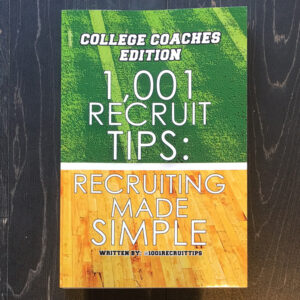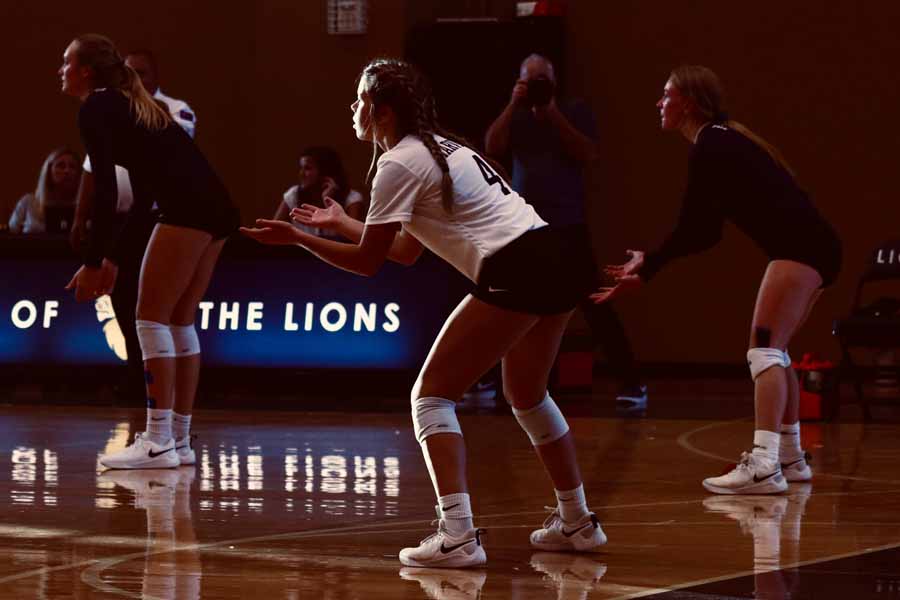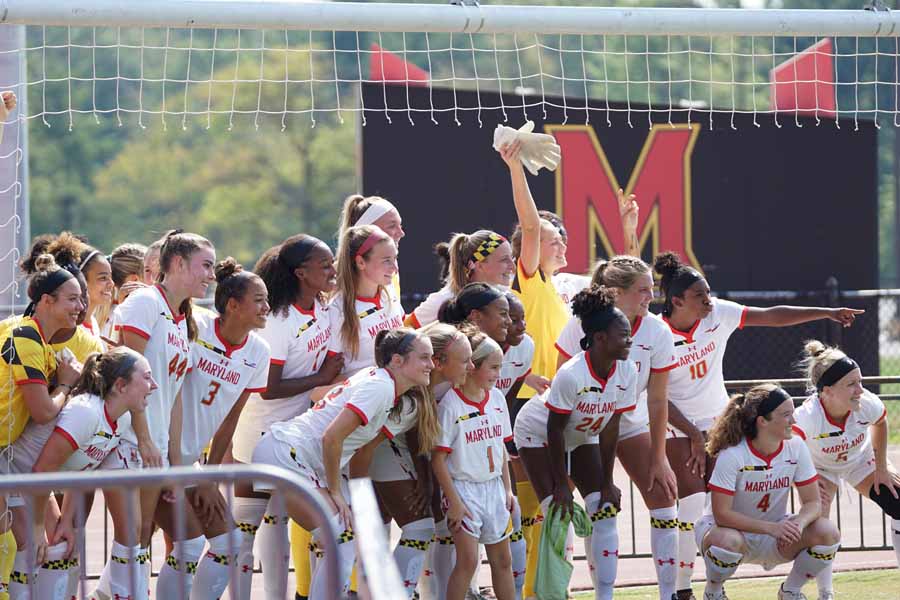Many of the assistant coaches that I’ve worked with aspired to be a head coach or coordinator. Almost every single one of them, at times, had their eye on their next promotion or dream job. Understandably! We’re in a goal-oriented, cut-throat business—OF COURSE we are all trying to move up.
Don’t lose sign of this: the quickest way to move up is to succeed where you are right now. I repeat, the quickest way to move up is to succeed where you are right now! Succeed this year and develop a strong commitment to success in your CURRENT position now and in the next few years to come. The road to your dream job starts here—you preach it to your players: Be the best at your position. Do your job. We all play a role.
In the big picture of your team—are your position players and off-field responsibilities among the strengths of the team? You need to take great pride in your position players and off-field responsibilities. Let nothing slide!
BUILDING A STRONG POSITION GROUP, YOUR PLAYERS:
• Are dependable and consistent, on and off-the-field (if not, recruit some).
• Are masters of fundamentals. They aren’t always trying to win the game on every play… but they use near-perfect technique and often win one-on-one situations.
• Make few mistakes. They may not always be the home-run hitter (yet) but they rarely turn the ball over or make mental errors.
• Are prepared for each opponent. From your scouting reports, they have an edge because they know what to expect, they know tendencies and attack opponent weaknesses.
• Are confident. Confidence is a product of being prepared, not just a product of raw talent. Help your players build confidence by helping them be the most prepared players on the field.
• Are level-headed in pressure situations. They won’t lose their temper, throw punches. Once again, a lack of composure is often a product of being desperate. A prepared player never plays desperate.
• Are in good academic standing. They know how to take care of business on and off-the-field and won’t jeopardize their eligibility. You take a consistent, active role in their academics.
• They’re on time and have no or few off-field issues. They are accountable. They are on time for weights, have no issues with equipment room and they show up for media responsibilities. They handle their business on every level!
• As a unit, your players are a strength of the team. Your position comes through in tough times, can rally, are tough and will never be a weakness that your opponents can attack.
• Are leaders. Your unit is a group who can be responsible when coaches aren’t around, leaders in the weightroom, leaders in the lockerroom, leaders on campus and are a unit that can be depended on when the game is on the line.
• Are friends. They like each other and spend time together outside of the facility. Winning cannot occur without trust, and trust begins once your unit develops chemistry.
• Take pride in their role, no matter how small. They take pride in contributing to the success of the team, they take pride in being dependable and take pride in their work ethic and winning.
• Develop into a family. When your unit begins to play on a high level and the team begins to win—your unit will develop a brotherhood or sisterhood. They aren’t just teammates, they’re family.
• Consistently improve—from semester to semester, from year-to-year… your players are getting better. They master fundamentals. They get faster, bigger, stronger, smarter and more successful. There are concrete numbers to show these improvements.
• Can support other units when they are down. There is nothing like having the support and confidence from teammates when going through injuries, losing streaks or setbacks. Your unit can be a strength for the team, but also can lift up other units or positions on the team.
• Have a good grasp of life skills. They make eye contact with others, are on time for non-athletic appointments, have manners, etc.
MORE ASSORTED TIPS FOR ASSISTANT COACHES
• Understand and teach the game thoroughly. Know how to attack opponent weaknesses, win with the players you’ve got, teach fundamentals and research and teach the best drills to prepare your position group.
• Traits head coaches are looking for in assistant coaches: loyal, hard-working, reliable and trust-worthy. Being disloyal and untrustworthy are career-killers.
• Not everyone on the staff will get along—there will always be jealousy, personal differences, age differences but in order to win you must be able to put that aside to work with each other!
• Coaching is a family—build your network. Outside of your head-to-head competitions, consider other coaches as your co-workers, not enemies. Build a strong network. You will rely on them heavily throughout career. Keep it professional and courteous.
• Best way to move up from where you are today into a new position? Be the best at your current position! Treat your role and current school as your dream job, and work like it’s where you’ve always dreamed to be.
• Your players will mirror you. You want them to do it right and pay attention to detail—you must take the lead and see that you take the little details serious, too. Do what you say you will do. Follow through!
• Your days will be unpredictable, you may get a surprise visit from the Athletic Director, a top recruit, the University president or a big booster… you just never know who you’ll cross paths with. Dress daily in a professional way—always clean, crisp and professional. It’s always a great idea to keep a spare suit coat, tie, dress, dress shoes and any other “church clothes” essentials that you can change into quickly if needed, to save time from running home.
• It’s never “I,” “me” or “mine.” Instead, use “we,” “us,” and “our.”
READ MORE: Get more Coach Tips here
• No detail is too minor for the head coach. If they want to be kept up-to-date on an issue, keep them in constant communication with a quick text, call or email. It’s better to over communicate than to leave them in the dark with your progress.
• Become a great evaluator of talent—you need to learn how to find the hidden gems who aren’t gracing every recruiting Top 100 list. You need to be able to “find” great players before every other coach.
• Remember—you are ALWAYS representing your boss and university. Don’t lose your job because you can’t handle your alcohol out in public, get arrested or get into altercations. Like you probably warn your players, be careful of the company you keep as well!
• Understand and value that EVERYONE in the program has a role. Everyone has different strengths, everyone can contribute something different and critical: coaches, players, trainers, doctors, academic counselors, marketing staff, interns, students, boosters, maintenance staff, housing staff. Know people by name.
• Think ahead, anticipate what’s next. What will your head coach need today/this week/next week?
• Self-evaluate and scout your team and position group. What weaknesses are returning? Evaluate top teams at those skills—how and why are they successful? What do they do exceptionally better? What drills can you use to help your players improve? Be brutally honest with yourself on which weaknesses your players need to improve on. Build on what they are really good at, show them how to get better!
• Nothing is beneath you—all hands on deck. Be wise with your time and put most urgent priorities first! Whatever is most important to your head coach is most important to you!
• Appearance is also important. Your days will be long, stress will be high—being in shape will help you fight mental and physical battles. Be well groomed, well dressed and energetic.
COACHES: Read more from ‘Recruiting Made Simple’
• How can you separate yourself—what value can you add to a staff? What can you become the best at, something they will be dependent on? Scouting, recruiting, relationships with prep coaches, developing players, leadership?
• Scout opponents as if your job depends on it—at some point, it will! The smallest of details can make the biggest of difference when it comes to game planning and having your players prepared.
• If needed, help communicate for your head coach. You may have to return calls for them, take on delegated responsibilities. Remember—your job is to make their job easier and to make them look good. Ask if there is anything you can take off their plate, as long as you can handle your regular responsibilities.
• If you lack experience or talent, you can overcome your weaknesses by being hardest worker who brings relentless energy—in the same way that you teach your players that “Hard work beats talent when talent doesn’t work hard.” Be the first coach in and the last to leave, and be the most efficient and productive during those hours!
• Be who you are and believe in who you work for.
• Never doubt the head coach in front of players or other members of the staff. When the negative talk begins internally everyone’s job is in trouble. If there is an issue with the head coach, approach them directly and privately.
• Develop a good relationship with your player’s parents—communicate! They need to be your allies, not your enemies! Deal with issues before they become unmanageable.
• Have a ‘no gossip’ policy with your spouse. Like you tell your players, ‘What happens in the lockerroom stays in the lockerroom.’ If they can’t keep issues quiet, limit what you share with them.
• Answer the phone at any time, unless previously approved by head coach for a vacation or personal time.
• Carry yourself with a sense of urgency every day – at practices and meetings, not just for games
• Expect your players to be alert in meetings – feet on the floor, paying attention.
• Be consistent when discipline players. You can’t hold your best players to lower standards that you hold every other player to, it’s the first step to losing control of your team.
#CoachTips: Read more articles for coaches





